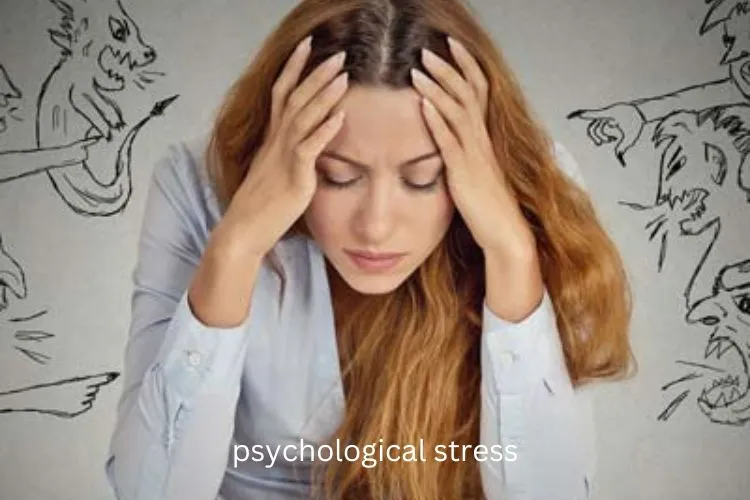“Stress should be a powerful driving force, not an obstacle.”
―Bill Phillips
If you can control it, modify it. If you can’t control it, don’t stress about it. Although this might be easier said than done, it’s exactly how the management of stress works. Stress has the ability to negatively as well as positively impact our lives. The direction it moves forward in completely depends on how we take it further.
What is Psychological Stress?
To define stress in psychology, we need to understand that it isn’t just a feeling, but is also a state of being. Stress is a state of tension and strain on emotions. A person may experience anxiety or other unfavorable feelings in response to a circumstance, such as strain, distress, and so forth., which they then label as stressful. Stress can be external and connected to the environment, but it can also result from internal views. It causes modifications in almost all bodily systems, which have an impact on how people feel and act.
Expert Psychologists define Stress as the mechanism through which we evaluate and react to difficult or dangerous situations. It is a form of mental pain and anguish.
Types of Psychological Stress
Stress can be short-term, long-term, or both. In 1974, Hans Selye proposed certain types of Stress. These types involved Eustress, Distress, Hyper-Stress, and Hypo-Stress.
- Eustress is usually known as “Good stress”. This kind of stress motivates and accelerates productive behavior in people. In psychology stress and health are often misunderstood as paradoxes. While this might be true to some extent, Eustress helps to take action in a demanding situation. An example of this Eustress involves the stress students get before an exam. It helps them prepare well for their test. Although, if Eustress is exaggerated, very quickly, it can take the form of Distress, in turn having negative implications.
- Distress is a more severe form that hinders one’s ability to think clearly and act rationally. An example of Distress might include the tendency of students to get extremely anxious about the upcoming exam, so much so that they would find it difficult to focus and prepare for the test.
- High amounts of stress are referred to as Hyper-Stress and can also cause extreme emotions like panic attacks or irritation.
- Hypo-Stress is characterized by a lack of stress, which results in under-stimulation and causes a person to become bored, impatient, unproductive, and dissatisfied.
Sources of Psychological Stress
Causes of stress might range from a simple argument to an emotionally taxing event. There can be a variety of sources from which stress might be stemming. According to the American Psychological Association(APA), sources of stress may be internal or external forces that require adjustment or coping strategies on the part of the affected individual.
Internal stressors are generally difficult to recognize and tap because they stem from within the individual. On the contrary, external stressors are around us in the form of our experiences, situations, life events, and so on., making them easier to be aware of. These stressors are also known as environmental stressors.
If you directly want to talk with any expert then our online psychologists are always available to help you with it. feel free to do it.
Psychological Symptoms of Stress
Whether the stress is acute stress or chronic stress, it leads to a variety of symptoms. These psychological signs of stress can also be seen in outward expression. The symptoms involve anxious thought patterns, irritability, restlessness, lack of motivation & concentration, insomnia, worrying too much, feeling overwhelmed, getting panic attacks, procrastinating or neglecting responsibilities, and feeling fatigued too often. Other symptoms manifest physiologically in the form of palpitations, rapid heartbeat, difficulty breathing, aches and pains in the body, and so on.
There’s yet another way that negotiators and police officers often use to gauge stress. A device known as the Psychological Stress Evaluator machine is used in order to detect signs of stress in the voice. This is a device that analyses the voice of an individual to gauge the signs and symptoms of stress. However, this isn’t the most effective means of detecting the symptoms of stress. A full-fledged picture of Stress could be found via self-report measures, behavioral coding, analysis of cognitions and emotions, along with the physiological responses to the stressful event.
Are you finding it difficult to deal with your stress? Get help from our wellness experts at Ganeshaspeaks.com.



